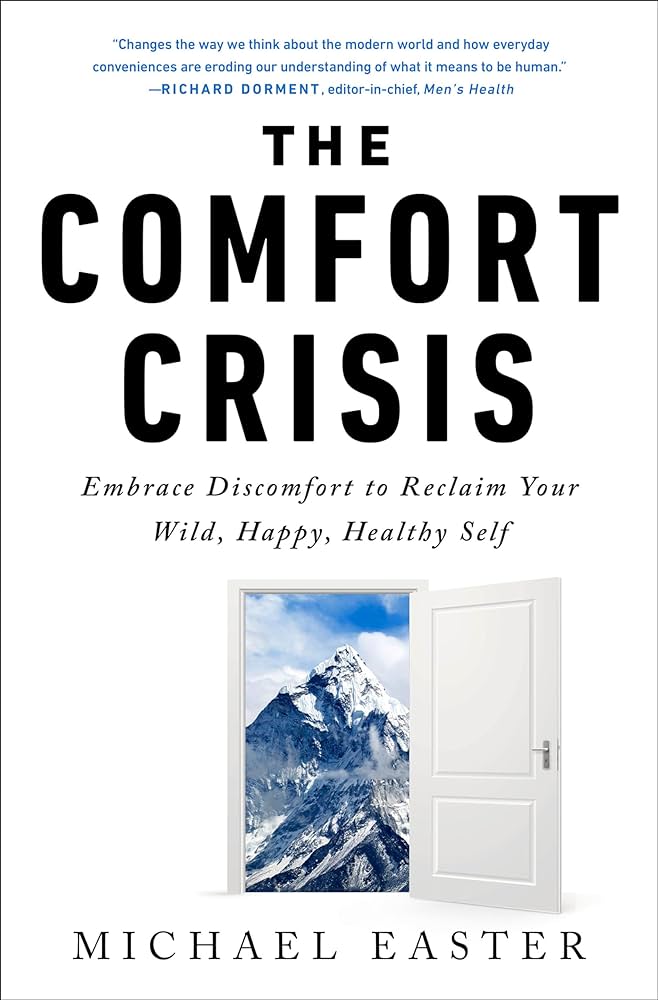
Review
I read the book because the title resonated with me, I really enjoy pushing my limits. It wasn’t quite what I was expecting. I won’t be recommending it to others. The author told the story of the comfort crisis and (how to snap out of it) interlaced with tales from an Alaskan hunting trip. Sadly I didn’t find it all that relatable – although there was plenty of food for thought and interesting references.
Key Takeaways
The 20% that gave me 80% of the value.
- We rarely step outside our comfort zones and feel the sensation of discomfort. We lack struggle. We’re never bored.
- Over time we lower our threshold for what we consider a problem. We end up with the same number of troubles. What’s comfortable is an ever increasing moving target
- We evolved to seek comfort. In a hostile world that keeps you a live. In a comfortable world it limits your potential.
- We need to get uncomfortable and ditch the comfort blanket and learn new limits.
- Misogi is doing something so hard once a year → that it has an impact on the other 364 days. An emotional, spiritual, and psychological challenge that masquerades as a physical challenge
- Rule 1: it has to be really fucking hard. Pitch it so you have a 50% chance of success if you do everything right.
- Rule 2: you can’t die
- Misogi should also be adventurous, have a clear goal and be quirky or uncommon.
- People who face some adversity report better psychological well-being. Facing challenges makes people feel more robust and resilient
- These challenges are beneficial for obesity, heart disease, cancers, diabetes, depression, and anxiety
- Only you are watching. Are you important enough to see it through?
Other takeaways of note
- Silence is more calming than most products that claim to be relaxing
- Exposure to nature drops blood pressure, heart rate and stress
- Beware of eating for reasons beyond hunger (eating for dopamine and not for fuel (comfort food and stress eating))
- Track what you eat. Close the gap between what you think you eat and what you eat.
- Stress is inevitable – you need to change the response
- Eat foods if medium energy density
- Fast occasionally
- Connect with the concept of impermanence. Think of death 3 times a day.
- Exercise-induced fatigue is a psychological state (not a good indicator of your physical limit)
- Breath rhythmically to take your mind of exercise. Focus only on the breath
- Exercise often performs better than the best medications for treating issues
- Put yourself through a big challenge and you’ll be impossible to rattle – and you’ll be grateful for the little things, and become more aware of time passing
- Rucking is strength and cardio in one. Causes 6x less injuries than running. Use weight as a handicap and make rucking social